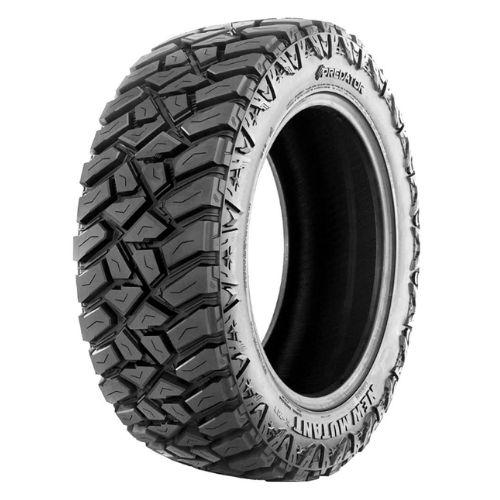Tires are built to endure a lot, from constant friction to flying stones. They’re tough, but even the most durable tires have a lifespan. As tires age, they may begin to crack. You should take these cracks as a sign to change your tires soon - if not immediately.
In this article, we’ll go over what causes cracks in tires, why they’re dangerous, and when you should replace your tires:
What causes cracks in tires?
Exposure to chemicals, UV radiation, changes in temperature, oxygen, and other environmental factors will reduce the flexibility of your tires. Tires are constantly expanding and contracting, but the natural flexibility of tire rubber means that it can undergo these processes without cracking. When that flexibility is reduced, however, expansion and contraction in different parts of the tire can cause the rubber to crack.
When should I worry about cracks in my tires?
Back in the day, tire cracks were incredibly common, but recent innovations have introduced compounds that reduce the chances of cracking. That’s a good thing; it improves the lifespan of tires. It does, however, mean that cracks are more of a concern than they used to be, as they don’t tend to appear until the tire has endured a lot of wear and tear.
Sidewall cracks
Sidewall cracks are cause for concern but not necessarily cause for alarm. The cracks will grow unless you repair them; be aware that tire crack repairs aren’t built to last, and you’ll still need to replace your tires soon.
Small, shallow cracks aren’t much of an issue, but keep your eye on them - they’re likely to grow. If you have many large, deep cracks in your sidewall, you’ll need to repair your tires, or the sidewall of your tire may break open. A sidewall breaking open while you’re cruising down the highway is a very bad thing.
Tread cracks
Cracks in the tire tread are cause for immediate concern - and possibly even alarm. These cracks almost always develop out of sidewall cracks that have wormed their way under the tread. The integrity of your tire has almost certainly been compromised.
Why are cracked tires dangerous?
In a word: Blowouts. The sidewall or tread of your tire can suddenly fail catastrophically. If you experience a blowout:
- Don’t step on the brake
- Accelerate slightly, steering straight
- Slow down by gently taking your foot off the gas
- Turn on your hazards
- Move toward a safe space. You should usually move toward the right side of the road where possible. If on a highway, pull over in the right-hand lane, as traffic is typically slower in the right-hand lane.
How can I avoid cracked tires?
Cracking at some point is almost unavoidable - but you can delay the inevitable with proper care. Here are a few tips:
- Keep your vehicle in a garage
- Keep your tires properly inflated
- Don’t drive too aggressively
- Avoid driving on rough terrain (we know many of you are off-roaders - hopefully, the other tips help)
How can I tell if my tires need to be replaced?
If your tires are cracked, you can visit one of our tire shops in Edmonton. We’ll tell you if you need a replacement.
Tires generally last for 5-7 years. You can tell if you’re getting close to this date by looking at a number on the sidewall of your tire. You’ll see the letters DOT, followed by a string of numbers and letters. The last four numbers in that string tell you the date the tire was manufactured. Manufacturers use a week/year format - for example, the number 2622 tells you a tire was manufactured in the 26th week of 2022, or approximately June 26th. If today’s date is 5-7 years after that date, your tires may need to be replaced.
Questions? Give us a call!
This article should help you avoid blowouts! If you have any questions about tire cracking - or anything else tire-related - we’ve got answers. Call us today!
